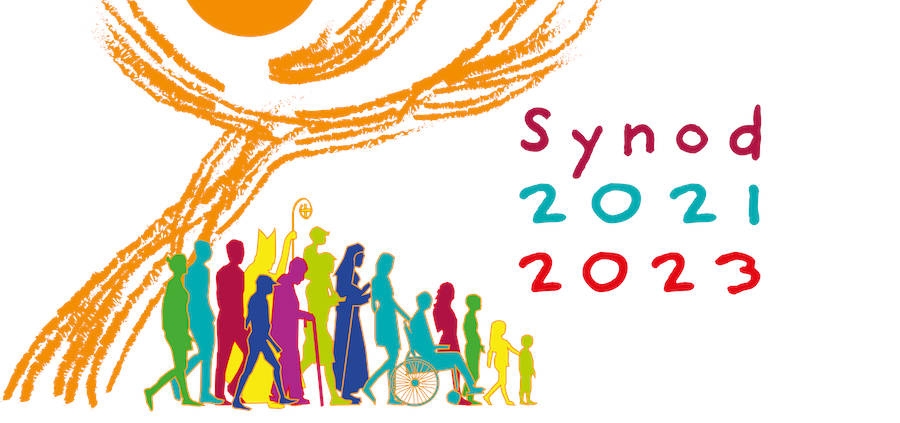Introducing . . . The Peoples Synod by Janet W. Hauter
A version of this essay originally appeared in the February 3, 2022, edition of the Association for the Rights of Catholics in the Church (ARCC) newsletter. We are grateful to the author and editors for permission to reprint it here. Further information on the ARCC’s synodal plans will be available in the coming weeks—Ed.
A decade ago, no one could have predicted that a pope would acknowledge a need for the peoples’ opinion on anything. Yet here we are at that very moment. We are being called to a new world order where power is shared with us in consultation, let alone a change in the institution. The Holy Spirit has gifted us new challenges and opportunities at this incredible moment in history.
We, the Peoples Synod, celebrate a hint of new life on the horizon, a hint of inclusion in these unsettled times. Some might cynically refer to our name as an oxymoron. We are a unique church reform movement centered on serving the needs of the People of God, the largest, most historically ignored population of our church. Our work is different; our target audience was inspired—it’s the People of God. That large target is populated by individuals who were not invited to participate in this challenge by their pastor or bishop, or who are alienated from the institution by abuse: power and control, sexual crimes, financial gain. These are the forgotten, the ignored, that we will seek out.
Within that population are the very people, we believe, who could add value to the outcome of the 2023 synod. Turning an autocratic governance model upside down is a monumental feat. There are innumerable variables to consider with every step and major global impact as it proceeds. We defined our target audience, developed and tested the chosen process through a successful pilot. Our relationship with the Spirit is new and unique. Pope Francis’s dream is a phenomenal historic leap; with no model to follow, no expert to approach—except the Spirit—by default, we’re a team. We support the Spirit’s vision through prayer and discernment, nudged and motivated by her to act.
We initially struggled with our movement’s purpose but never abandoned the notion that we were called to support the faithful. But how? When the synod of 2021–2023 was announced, however, the epiphany happened. We saw our call clearly: to wake the faithful from their slumber by engaging them in dialogue about issues that personally affect them, and to dream of recommendations that reach and extend as wide and as deep as possible.
Synodality, a particularly complex construct, is said to be an ancient process. To really understand synodality is to experience it rather than have it explained. It’s a head-heart issue, and synodality, once realized, has incredible hidden benefits that are often initially undetected.
First, through deep listening, we gain a more holistic perspective of an issue by hearing others share their stories on the same issue. Second, as stories continue to be shared, our perspective widens and deepens on the topic and creates a closer relationship with the other through the vulnerability of sharing. Third, as relationships grow and deepen, trust builds; and as trust builds, there is a new sense of “ownership” to the issue. That sense of ownership keeps us mindful of the care and nurturance of a proposed solution, and for it to have sustainability.
We believe that because synodality is countercultural, it is better experienced (heart value) than taught (head value). Engaging in respectful dialogue in small communities and listening to peers is an optimal direction for truly absorbing the benefits of synodality in these challenging times. We need to make space, as Pope Francis calls us, for something new to happen. Once experienced, there is a lasting impression coupled with an ability to embrace a method that transforms the process and each cooperating individual: the magic is that, communally and individually, we are changed. Experience trumps cognitive definition, offering illustrative understanding and stronger relationships as outcomes.
Pope Francis has gifted the church with a “marker moment,” an historic opportunity for us en masse. Opening the door to be heard, we provide responses to share how we believe the institution can best serve the needs of the people. Unique indeed! We are being invited to travel the same journey as our pontiff. Mind-blowing, isn’t it?
In marker moments such as these, we must be realistic. We cannot imagine another repeat of Vatican II where outcomes were changed, not shared until they were reinterpreted for us. Really? We don’t do that to four-year-olds. That can never occur again.
Our trust, however, is in Pope Francis. Vatican II offered a new vision of church where the people were recognized as the People of God, a new respectful identity. Focusing on our call to holiness, a call to become missionaries of our faith and stressing the importance of family, were all elements of the change that was dreamed, but power stepped in and subverted it. ♦
Janet W. Hauter is Executive Director at Mission of the Spirit in Tinley Park, Illinois. She can be contacted at jwhauter@gmail.com.





Leave a Reply
Want to join the discussion?Feel free to contribute!